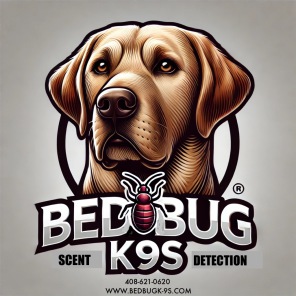
Highly Trained Bed Bug Detection Dogs for Sale
Trained Bed Bug Detection Dogs for Sale
Looking to buy a certified bed bug detection dog? You’re in the right place. We provide fully trained, bed bug sniffing dogs that are ready to work—whether you’re starting your own bed bug detection business, adding a K9 unit to your pest control company, or expanding your inspection capabilities.
Why Choose a Bed Bug Dog?
Bed bug detection dogs are faster, more accurate, and more efficient than traditional inspection methods. Trained to detect even the smallest traces of live bed bugs and viable eggs, our K9 bed bug detection teams offer an unmatched level of precision.
Bed Bug Detection Dogs Available Now
We specialize in pairing handlers with professionally trained bed bug dogs for sale. Each dog is:
✅ Trained on live bed bugs and viable eggs
✅ Socialized and handler-ready
✅ Available with handler training and certification
✅ Backed by ongoing support and re-certification options
Whether you’re looking for a working bed bug dog or you have a dog and want handler training, we tailor the program to fit your needs.
Handler Training & Certification
No experience? No problem. We offer bed bug detection dog handler courses for both new and returning professionals. Our program includes:
- Hands-on field training
- Real-world search scenarios
- Daily assessments and feedback
- Industry-recognized certification
Take your business to the next level with handler training and a certified bed bug dog—everything you need to get started is right here.
? Serving Companies Worldwide
We serve clients across North America, Europe and Asia. Whether you’re in a major city or a smaller town, we can help provide you with the right K9 bed bug detection team for your location.
? Get Started Today
Contact us to learn more about our bed bug detection dogs for sale, pricing, availability, and upcoming handler training programs. Let us help you find the perfect K9 partner to meet your goals.
Popular Searches We Serve:
bed bug detection dog for sale • bed bug sniffing dog • certified bed bug dog • trained bed bug dog • K9 bed bug detection • buy bed bug detection dog • bed bug dog handler training • working bed bug dog • start a bed bug detection business




